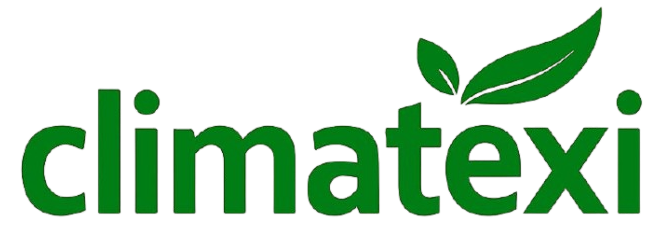Smart Hospitality Market Outlook, Challenges, and Opportunities by Region
Market Trends Shaping Executive Summary Smart Hospitality Market Size and Share
The global smart hospitality market size was valued at USD 36.48 billion in 2024 and is expected to reach USD 236.20 billion by 2032, at a CAGR of 26.3% during the forecast period.
The global smart hospitality market has emerged as a key segment within the broader technology and service industry, driven by the growing integration of the Internet of Things (IoT), artificial intelligence (AI), and automation technologies into hospitality management. The transformation from traditional operations to smart, tech-driven services is reshaping how hotels, resorts, and other accommodation providers engage with guests and manage resources. The focus is increasingly shifting toward improving customer experience, energy efficiency, operational transparency, and security through connected and data-driven systems.
Market Overview
The smart hospitality market primarily includes smart room systems, energy management solutions, hotel operation management systems, and integrated communication technologies that enhance guest satisfaction while streamlining hotel operations. Rapid digitization and the rising demand for personalized and contactless services have fueled the growth of this market. Moreover, the tourism and travel industry’s recovery after global disruptions has strengthened the demand for intelligent infrastructure and automation in hotels.
The key components of smart hospitality systems include smart room control devices, IoT-enabled locks and sensors, cloud-based management software, and AI-powered virtual assistants. These innovations enable hotels to deliver enhanced convenience to guests while optimizing resources such as energy and manpower.
unlock detailed insights into the growth path of the Smart Hospitality Market. Download full report here:
https://www.databridgemarketresearch.com/reports/global-smart-hospitality-market
Key Market Drivers
Growing Adoption of IoT and AI Technologies:
The increasing integration of IoT devices in hospitality settings has made it possible for hotels to collect real-time data on energy consumption, guest preferences, and maintenance needs. AI algorithms analyze this data to predict guest behavior, automate room settings, and even anticipate service requests.
Rising Demand for Personalized Guest Experiences:
Modern travelers expect more than just accommodation; they desire a seamless, customized experience. Smart hospitality systems allow hotels to tailor services to individual guests by tracking preferences such as room temperature, lighting, entertainment options, and dining habits.
Focus on Energy Efficiency and Sustainability:
The hospitality industry is under growing pressure to adopt sustainable practices. Smart energy management systems help hotels monitor and reduce power consumption, minimize wastage, and lower operational costs. Automation in lighting, heating, and air conditioning ensures that energy is used efficiently.
Increased Use of Mobile and Contactless Technologies:
Mobile apps, smart check-in/check-out systems, and contactless payment solutions have become integral to modern hospitality management. These technologies not only enhance guest convenience but also improve operational efficiency by reducing manual workloads.
Post-Pandemic Digital Transformation:
The COVID-19 pandemic accelerated digital adoption in the hospitality sector. Hotels quickly integrated automation and self-service technologies to minimize physical contact and ensure guest safety. The trend has continued, with many hotels now investing in permanent smart systems for long-term competitiveness.
Market Segmentation
The smart hospitality market can be segmented based on component, technology, application, and region:
By Component:
Smart Rooms (lighting control, HVAC control, entertainment systems, smart locks)
Building Automation Systems
Hotel Operation Management Systems
Guest Service Management Systems
By Technology:
IoT
Artificial Intelligence (AI)
Cloud Computing
Mobile Communication
Big Data Analytics
By Application:
Business Hotels
Heritage and Boutique Hotels
Resorts and Spas
Cruise Lines
By Region:
North America
Europe
Asia-Pacific
Middle East & Africa
South America
Among these, North America holds a leading position in market share due to the high adoption rate of smart technologies and the presence of major hotel chains investing in digital infrastructure. Meanwhile, the Asia-Pacific region is expected to experience rapid growth driven by increasing tourism, urbanization, and investments in smart city initiatives.
Emerging Trends
Integration of Voice Assistants:
Voice-activated technologies such as Amazon Alexa for Hospitality and Google Assistant are being deployed in hotel rooms to allow guests to control lighting, temperature, and entertainment through simple voice commands.
Blockchain for Secure Transactions:
Hotels are exploring blockchain-based systems to enhance data security, streamline payments, and build transparent loyalty programs.
Augmented and Virtual Reality (AR/VR):
AR and VR are being used for virtual tours, immersive booking experiences, and staff training. This trend enhances customer engagement and brand differentiation.
Predictive Maintenance through AI:
AI-powered systems predict potential equipment failures before they occur, minimizing downtime and ensuring consistent service quality.
Smart Energy Grids and Renewable Integration:
Hotels are increasingly connecting to smart energy grids and integrating renewable energy sources. Automated energy management allows for dynamic power distribution, optimizing costs and sustainability.
Challenges
Despite its potential, the smart hospitality market faces several challenges:
High Initial Investment Costs: The installation of IoT devices, AI systems, and integrated software requires substantial capital investment, which can deter smaller hotels.
Data Privacy and Security Concerns: As hotels collect large volumes of guest data, ensuring cybersecurity and compliance with data protection regulations becomes a major concern.
Lack of Standardization: Different vendors offer varied systems that may not always be compatible, making integration complex and costly.
Skill Gaps: Implementing and maintaining smart hospitality solutions require skilled personnel trained in advanced technologies, which may not always be available.
Competitive Landscape
The smart hospitality market is highly competitive, with numerous technology providers and service integrators offering specialized solutions. Major players are focusing on partnerships, mergers, and technological innovations to strengthen their global presence.
Some of the key companies operating in the smart hospitality market include:
Siemens AG
Honeywell International Inc.
Schneider Electric SE
Johnson Controls International plc
Huawei Technologies Co., Ltd.
IBM Corporation
Oracle Corporation
Cisco Systems, Inc.
NEC Corporation
Samsung Electronics Co., Ltd.
These companies are developing end-to-end solutions that integrate hardware, software, and cloud platforms to provide seamless automation and real-time monitoring.
Future Outlook
The smart hospitality market is expected to witness significant expansion over the next decade, driven by the proliferation of IoT devices and AI solutions. The adoption of 5G networks will further enhance connectivity and enable faster data transmission, supporting real-time analytics and automation.
In the future, hotels are likely to become fully digitized ecosystems where everything—from booking to post-stay feedback—is managed through interconnected systems. The fusion of technology and hospitality will continue to redefine luxury, convenience, and efficiency, creating a more engaging and personalized guest experience.
Furthermore, sustainability initiatives and government incentives for green buildings will promote greater adoption of smart energy management systems. Mid-scale and budget hotels are also expected to embrace smart solutions to remain competitive and meet evolving guest expectations.
FAQs
What is the smart hospitality market?
What are the main technologies driving the smart hospitality industry?
How does IoT impact hotel operations and guest experience?
Which regions are expected to see the fastest growth in the smart hospitality market?
What role does artificial intelligence play in smart hospitality solutions?
What are the key challenges faced by hotels in adopting smart technologies?
How is the smart hospitality market segmented by application?
What trends are shaping the future of smart hospitality?
Who are the leading players in the global smart hospitality market?
How does the use of smart energy management contribute to sustainability in the hospitality industry?
Conclusion
The smart hospitality market represents the future of the global tourism and accommodation industry. As technology continues to evolve, the emphasis on connected systems, automation, and sustainability will redefine how hotels operate and interact with guests. The fusion of comfort, convenience, and innovation will drive the next phase of growth, making smart hospitality not just a trend but a fundamental necessity for competitive advantage.
Browse More Reports:
Global Automotive Modular Seat Market
Global Chicory Leaf Extract Market
Global Driverless Tractor Market
Global Iris Melanoma Treatment Market
Global Multicooker Market
Global Photovoltaic Market
Global Robotic Vacuum Cleaner Market
Global Telestroke Market
Global Biometric Identity Solutions Market
Global Custom Antibody Services Market
Global Flame Retardant Acrylic Market
Global Ice Detection System Market
Global Mesh Mist Eliminators Market
Global Pediatric Mechanical Heart Valve Market
Global Bathroom - Toilet Assist Devices Market
About Data Bridge Market Research:
An absolute way to forecast what the future holds is to comprehend the trend today!
Data Bridge Market Research set forth itself as an unconventional and neoteric market research and consulting firm with an unparalleled level of resilience and integrated approaches. We are determined to unearth the best market opportunities and foster efficient information for your business to thrive in the market. Data Bridge endeavors to provide appropriate solutions to the complex business challenges and initiates an effortless decision-making process. Data Bridge is an aftermath of sheer wisdom and experience which was formulated and framed in the year 2015 in Pune.
Contact Us:
Data Bridge Market Research
US: +1 614 591 3140
UK: +44 845 154 9652
APAC : +653 1251 975
Email:- corporatesales@databridgemarketresearch.com






